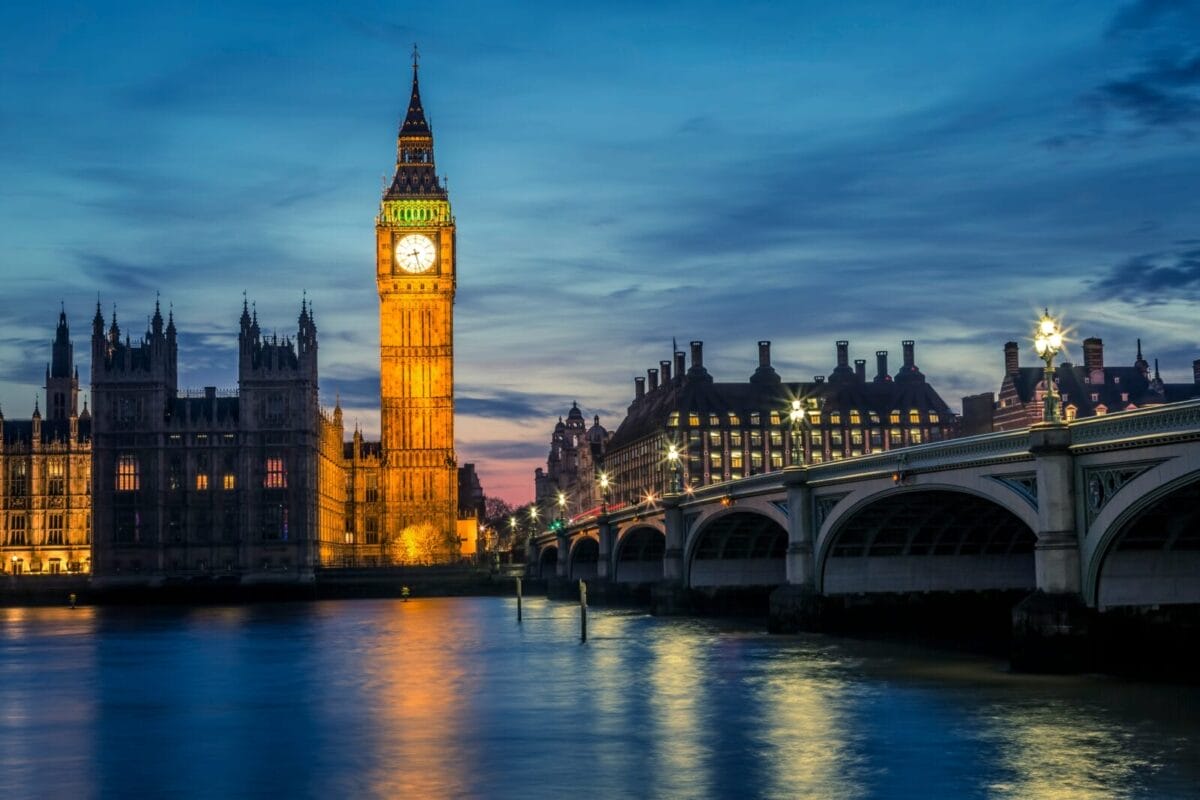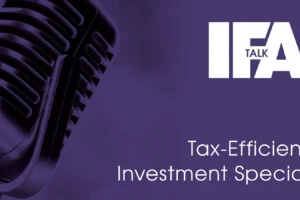This morning’s HMRC update reveals a notable rise in Inheritance Tax (IHT) receipts, which reached £3.1 billion during the first four months of the 2025/26 financial year. This marks an increase of £229 million (8%) compared to the same period last year, when receipts totalled £2.8 billion.
Based on the data, industry professionals have reacted.
Rachael Griffin, tax and financial planning expert at Quilter:
“HMRC’s latest tax receipts reveal a mixed picture for the UK’s fiscal health, which is increasingly being shaped by frozen thresholds, shifting policy, and growing uncertainty ahead of the Autumn Budget.
Between April and July 2025, PAYE income tax and National Insurance contributions reached £160.6 billion, up £13.5 billion year-on-year. With income tax thresholds still frozen, more workers are being dragged into higher tax bands, while businesses are having to shoulder rising employer NICs. This stealth tax strategy continues to deliver for the Treasury, but not without some consequences.
Meanwhile, inheritance tax (IHT) receipts continue to climb, reaching £3.1 billion between April and July – £0.2 billion higher than the same period last year. With nil-rate bands frozen until 2030 and property values still elevated, more estates are being pulled into scope. And with pensions set to be included from April 2027, the IHT net is tightening further.
Looking ahead, rumours of a lifetime cap on tax-free gifts are causing some concern. Such a cap would mark a fundamental shift in how families pass on wealth, potentially capturing not just strategic transfers but also routine support between generations. Tracking lifetime gifts would be administratively complex and could lead to unintended behavioural shifts, from premature asset transfers to increased use of trusts. Any reform must balance revenue goals with the vital role intergenerational support plays in the UK economy.
Meanwhile, housing market uncertainty is mounting. Reports suggest the Treasury is weighing new levies on high-value homes or gains on primary residences. If either of these were to materialise in the Autumn Budget, transactions could seize up as sellers consider sitting on their hands in the hopes that another government might reverse the changes. That would risk even tighter supply and, paradoxically, could push prices higher by intensifying competition, compounding problems for first-time buyers.
With the Autumn Budget nearing, the government faces a delicate balancing act. Revenue needs are real, but so is the risk of overreach. Tax policy must be proportionate, predictable, and mindful of behavioural responses. Otherwise, it risks undermining both public confidence and the tax take itself.”
Ian Dyall, head of estate planning at wealth management firm Evelyn Partners, says:
“The July figure means that Inheritance Tax revenues for this financial year so far are running about 6.9 per cent ahead of the same period last year.
Monthly receipts data reliably shows how fiscal drag is bringing more wealth into the scope of IHT, but the numbers that really matter for wealthier households are those showing the overall state of the public finances, because that’s what prompted last year’s Budget overhaul of IHT rules, and it’s not unthinkable that the transfer of wealth will be on the table again at the next Budget.
The dilution of business and agricultural property reliefs doesn’t come into force until next April, and the inclusion of unspent pension assets in estates doesn’t occur until April 2027, so we won’t see how much money they bring in through the Treasury door until well after those dates.
However, it is well known that families, and especially wealthier ones, tend to take steps to mitigate significant tax increases and to change their behaviour, which raises the risk that the tax take disappoints. It’s doubtless this fear which could put, if the rumour circulated last week is to be believed, the gifting regime under the Chancellor’s spotlight this time around. One of the easiest ways for families to reduce the threat of larger IHT bills is to gift during lifetime, and as the seven-year rule allows unlimited amounts to be transferred and possibly leave the estate altogether, this is the natural escape route that the Treasury might seek to block off.
One issue with such a step is that gifting might be a plus for other tax revenues and the economy. The forthcoming IHT rule changes are leading people to gift business assets and to start accessing their pensions, to spend as well as give away, which should lead to increased income and other tax revenues in the short term. Funds gifted to younger people are more likely to be spent and fed back into the economy, and in a roundabout way boost VAT and stamp duty land tax for instance. Maybe Treasury officials are not too worried about the short term IHT receipts and more keen to get money moving out of tax-protected pensions?
But this is still not going to raise the sort of sums that the public purse looks like it needs, certainly not in the short or medium term, so one wonders whether another move on IHT would be worth all the negative headlines.”
Susannah Streeter, head of money and markets, Hargreaves Lansdown:
‘’There will be relief in the corridors of the Treasury that UK government borrowing came in lower than expected in July. It came in £1.1bn, down £2.3bn from the same month last year, according to the Office for National Statistics. It’s the lowest July figure for three years. While it won’t remove the tight fiscal bind the Chancellor is in, it does ease the pressure a little. Borrowing is now largely on track with forecasts made by the independent Office for Budget Responsibility earlier this year. There were stronger than expected tax, and National Insurance receipts, potentially helped by the UK economy returning to growth in July and the effect of frozen tax thresholds taking effect. Even though the number of payrolled employees was estimated to have dipped during the month, wage growth remains at a strong 5% and an upswing in discretionary spending during the month may have helped boost the tax take. The effects of the higher National Insurance Contributions from employers will also have filtered through. It’s a brighter picture for the government but it won’t stop the chatter about tax rises in the Budget given that economic growth estimates have dialled back, gilt yields have been rising and the government will still have a hole to fill in the public finances.’’
Helen Morrissey, head of retirement analysis, Hargreaves Lansdown:
“Inheritance tax receipts continue their unrelenting rise, hitting £3.1bn for the year so far. We are only part of the way through the year, but it already looks likely we are in for another record year for this most unpopular of taxes.
The decision to include pensions for inheritance tax purposes has garnered a lot of attention and has put the tax firmly on people’s radar. This means that those who think they may be affected can start putting a strategy in place to try and mitigate it. There are various gifting allowances such as the £3,000 annual allowance as well as gifting out of surplus income that will prove useful. However, it is hugely important that someone does not gift away too much too early to loved ones and potentially leave themselves short in their haste to avoid this tax.
It’s also worth saying that inheritance tax is not something that many families will need to worry about. There’s a set of thresholds available – known as nil rate bands. These mean that assets of any value can pass between spouses inheritance tax free and that the surviving spouse or civil partner inherits any of the deceased’s remaining nil rate bands. This means that couples have the potential to pass on up to £1m to their children or grandchildren free of inheritance tax.
However, there will be families who are not so lucky and could be caught unawares. Rapid house price growth in recent years may mean there are families out there with a looming tax bill they know nothing about. The same can be said for cohabiting couples who may have been together for decades but still don’t have the same rights as a married couple or civil partner. It’s important these couples understand the potential implications for them so they can plan ahead.”
Sarah Coles, head of personal finance, Hargreaves Lansdown:
Income tax
“We saw the usual self-assessment bump in July, as people who work for themselves and meet the criteria make their payments on account. We can’t write off the higher tax take as a one-off though, because the self-assessment tax take was up 21% from July last year, and we’re paying far more in income tax overall. Early estimates suggest we might pay an estimated £89.2 billion more in tax on our earnings in the current tax year.
This is due in large part to the frozen tax thresholds. The fact that this freeze is in place until 2028 means it’s not over yet. Speculation about possible income tax changes in the autumn Budget hasn’t been widespread, but we can’t rule out the risk that the freeze in tax thresholds could be extended and drag even more people into expensive tax bills.
It means we need to consider what we can do to make our finances as tax efficient as possible. If you get interest on savings beyond your personal savings allowance, a cash ISA can shelter this from tax. Meanwhile, the most effective way to protect your income from tax is by paying into a pension.
Capital gains tax
July often sees a rise in the capital gains tax take, and this year is no exception. However, the amount of CGT being collected is still significantly lower than the same time last year – down 12% to £165 million, as investors hoard assets in order to avoid paying the tax.
If you invest in stocks and shares, you have better options than hoarding. If you have gains on investments outside stocks and shares ISAs, you can realise them within your tax-free allowance each year. At the same time, you can also use share exchange (or Bed and ISA) to move those assets into a stocks and shares ISA, to protect them from CGT in future. You can also transfer assets to a spouse so they can do the same – known as Bed and Spouse and ISA.”
Jonathan Halberda, specialist financial adviser at Wesleyan Financial Services, said: “With the government looking at further ways to balance the national books, there is growing speculation that they could look at ways of increasing IHT revenue even further.
How to manage IHT exposure is the most common question that we’re receiving from clients. And what it really comes down to is good planning. A few steps to consider now include:
1. Gift wisely
“Handing over money or possessions during your lifetime can reduce the value of your estate for IHT purposes.
“You can give up to £3,000 a year to anyone tax-free, or unlimited amounts to your spouse or civil partner.
“Regular gifts from your income can also help, but remember, anything given in the seven years before death may still be taxed.”
2. Use trusts to ring-fence wealth
“Placing assets in a trust means they’re no longer part of your estate when IHT is calculated, but you still control who benefits, and when. Trusts can be highly effective, but they’re also complex, so expert advice is essential.”
3. Secure your partner’s position
“Married couples and civil partners can transfer everything to each other tax-free, including property. Unmarried couples don’t get the same treatment, which is why, for some, formalising the relationship can make financial sense.”
4. Put your wishes in writing
“A will ensures your estate is distributed as you want, and helps you make full use of allowances. Without one, standard rules apply, which could mean a bigger bill and less control over who inherits.”
Stephen Lowe, Director at retirement specialist Just Group, said: “Rising asset prices, frozen thresholds and constrained public finances continue to tighten the Inheritance Tax net and secure increasing receipts for the Treasury.
This year looks set to be no different, current figures show the 2025/26 year is on course to be another record breaker – for the fifth year in a row.
As the Chancellor continues to feel the fiscal pressure, she will want to explore all her options ahead of the Autum Budget. It’s likely that Inheritance Tax will have the slide rule run over it once more.
With more estates being subject to inheritance tax, and the prospect of changes to the rules on the horizon, it is important people keep track of the valuation of their estate, including a recent assessment of their property wealth.
Estate planning is complex and difficult, so many families may find it beneficial to seek professional financial advice to understand their circumstances, the impact of the IHT regime and their options for minimising tax liabilities.”
Richard Jameson, partner at Saffery, comments:
“The tax trends shown in today’s figures from HMRC are unfolding against a backdrop of economic fragility: while inflation remains sticky, there’s been a notable slowdown in the jobs market, with hospitality and leisure sectors among those showing weakness, further complicating the economic outlook.
“As we approach the autumn Budget, the Chancellor is facing a forecast £40 billion fiscal gap and, undoubtedly, a crossroads: Does she look to plug the looming £40 billion budget hole with a one-off quasi-wealth tax, perhaps targeting property, or is she eyeing wealth-tax mechanisms as recurring revenue streams?
“Inheritance Tax receipts are £0.2 billion higher than the same period last year, driven by frozen thresholds and rising asset values. With further reforms, such as limiting agricultural and business property relief and bringing pensions into the IHT net, set to lift annual receipts even more, the Chancellor may well view IHT not just as a plug, but as a growing, recurring revenue lever heading into the autumn fiscal statement.”
Andrew Tully, Technical Services Director at Nucleus said:
“IHT receipts have increased more than 50% over the past five years with the OBR suggesting significant increases will continue over the next few years. That upward trend is continuing in the 2025/26 tax year. Receipts will increase further in the years to come due to recent policy changes including limits to agricultural and business reliefs and extending the freeze in IHT nil-rate bands to 2029/30, as well as ongoing increases to property prices across the UK.
The Government has also said it will proceed with its plans to include pensions within the estate for deaths after 6 April 2027. This will deliver poor outcomes for customers, beneficiaries, personal representatives, the industry, and HMRC. But it will drive further strong growth in IHT receipts after 2027.”
There is still time for the Government to consider alternative options which increase its tax take on wealthier people passing on pension wealth, while avoiding the numerous problems created by bringing pensions into IHT. However, it’s looking increasingly likely it will stubbornly stick with its current complex proposals.
Taken together all of this is likely to make IHT a more relevant issue for many more families within the next five years. Advisers can help clients mitigate these taxes by setting up trusts and making use of gift allowances and the spousal exemption.”
Will Hale, CEO of Key Advice & Air, regarding today’s IHT figures from HMRC comments:
“Today’s numbers show another month-on-month rise in IHT receipts. This continues a significant upward trend, with receipts increasing by more than 50% over the past five years and 2025 set to be a record year in terms of taxes raised through this mechanism.
Furthermore, announcements around the inclusion of pension funds within the IHT regime, musings around the potential for a limit to be applied on lifetime gifting and continued house price inflation means that the government is looking at death as key focus for boosting public finances moving forward.
Many people who would fall beneath the traditional definition of ‘high-net worth’ are now sleep-walking into a situation where their estates will be subject to significant IHT charges. It is therefore imperative that families seek specialist advice and that this advice includes a consideration of all options for reducing the IHT liability – including modern later life lending solutions such as lifetime mortgages.”
Simon Martin, Head of UK Technical Services at Utmost Wealth Solutions, a leading provider of insurance-based wealth solutions, commented:
“Inheritance Tax is an increasingly lucrative revenue stream that is now delivering all-time high totals for the Treasury year after year – and this Financial Year is currently firmly on track for another record. Given the reforms already announced to the IHT regime alongside the ongoing freeze to thresholds, we would expect more and more estates to continue to tumble into the IHT tax net.
With public finances under strain, given the rumours currently circulating it would appear increasing likely that the Chancellor will look at the Inheritance Tax regime yet again at the upcoming Autumn Budget. A careful balance would need to be struck between further revenue-raising measures and any additional loss of confidence in the UK following some of the recent reported outflows of wealth.
With further changes to be implemented over the coming two years, we continue to see strong and growing demand for financial advice. Families are looking to understand how the n















